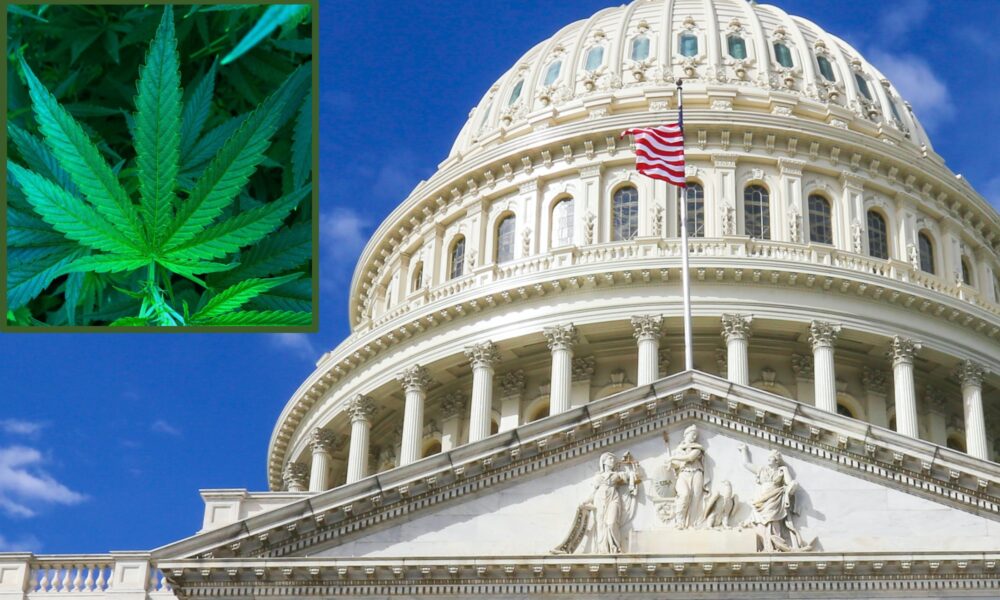A Democratic congressman is calling on the Drug Enforcement Administration (DEA) to complete its marijuana review “as swiftly as possible” and abide by the U.S. Department of Health and Human Services’s (HHS) recommendation to reclassify cannabis under Schedule III.
In a letter sent to DEA Administrator Anne Milgram on Thursday, Rep. Steve Cohen (D-TN) said he “appreciated the opportunity” to address the scheduling review process during a House subcommittee hearing she testified at last July but that he wants the agency to move more quickly to complete the job.
Since that hearing, HHS completed its scientific assessment of cannabis and advised DEA to move it from Schedule I to Schedule III under the Controlled Substances Act (CSA).
“I urge you, in the strongest possible way, to follow through on HHS’s recommendation,” Cohen said. “It is critical that the DEA’s review is expeditious and that your agency quickly initiate the rulemaking process.”
“Marijuana never belonged on Schedule I. Its inclusion resulted in harsh and disproportionate prison sentences, particularly for communities of color,” he wrote. “Nearly half the states have already legalized marijuana for recreational use by ballot measure.”
The lawmaker told Milgram she has a “historic opportunity to make make meaningful progress as Congress works on legislation to deschedule marijuana under the Controlled Substances Act and address some of the inequities caused by this misguided and discriminatory policy.”
“The DEA should move as swiftly as possible on this effort, and I hope to see a Notice of Proposed Rulemaking on this issue soon,” Cohen, who has long advocated for an end to federal prohibition, wrote.
While the Congressional Research Service (CRS) said it is “likely” that the agency will follow the HHS recommendation and move marijuana to Schedule III, DEA has emphasized that it has “final authority” over the matter and could make any scheduling decision, regardless of the HHS findings.
“DEA has the final authority to schedule, reschedule, or deschedule a drug under the Controlled Substances Act, after considering the relevant statutory and regulatory criteria and HHS’s scientific and medical evaluation,” the agency said in a letter to lawmakers last month. “DEA is now conducting its review.”
DEA’s statement came in response to an earlier letter from 31 bipartisan lawmakers, led by Rep. Earl Blumenauer (D-OR), that implored DEA to consider the “merits” of legalization as it carried out its review. That initial letter also criticized the limitations of simply placing cannabis in Schedule III, as opposed to fully removing the plant from CSA control.
Also, despite the furor over the ongoing rescheduling review, outside observers still know little about HHS’s justification for its recommendation that cannabis be moved to Schedule III. While the agency sent hundreds of pages of explanation to DEA as part of its rescheduling recommendation, those documents have so far only been released in highly redacted form, with little to no indication of the federal health agency’s findings related to possible medical benefits, addictive potential or any other aspect of the policy decision.
DEA has received a number of messages from different sides of the cannabis policy debate in recent months, including a recent letter from 29 former U.S. attorneys who urged the Biden administration to leave cannabis in Schedule I.
Last month, the governors of six U.S. states—Colorado, Illinois, New York, New Jersey, Maryland and Louisiana—sent a letter to Biden calling on the administration to reschedule marijuana by the end of last year.
Meanwhile, six former DEA heads and five former White House drug czars sent a letter to the attorney general and current DEA administrator voicing opposition to the top federal health agency’s recommendation to reschedule marijuana. They also made a questionable claim about the relationship between drug schedules and criminal penalties in a way that could exaggerate the potential impact of the incremental reform.
Signatories include DEA and Office of National Drug Control Policy heads under multiple administrations led by presidents of both major parties.
In October, Advocates and lawmakers who support cannabis reform marked the one-year anniversary of Biden’s mass marijuana pardon and scheduling directive this month by calling on him to do more—including by expanding the scope of relief that his pardon had and by expressly supporting federal legalization.
Two GOP senators, including the lead Republican sponsor of a marijuana banking bill that cleared a key committee in September, also filed legislation late last year to prevent federal agencies from rescheduling cannabis without tacit approval from Congress.
A coalition of 14 Republican congressional lawmakers, meanwhile, has urged DEA to “reject” the top federal health agency’s recommendation to reschedule marijuana and instead keep it in the most restrictive category under the CSA.
Separately, DEA recently announced that it is taking another shot at banning two psychedelics after abandoning its original scheduling proposal in 2022, teeing up another fight with researchers and advocates who say the compounds hold therapeutic potential.
The agency has separately warned Georgia pharmacies that dispensing THC is unlawful because it remains a Schedule I drug after the state became the first in the U.S. to allow pharmacies to sell medical marijuana, with nearly 120 facilities applying to sell cannabis oil.
Meanwhile, DEA recently affirmed that spores that produce so-called magic mushrooms are not, on their own, federally prohibited prior to germination.
California GOP Lawmaker Expands Psychedelics Bill To Create Workgroup And Plan For Veterans’ Therapeutic Access
Photo courtesy of Max Pixel.
Read the full article here









